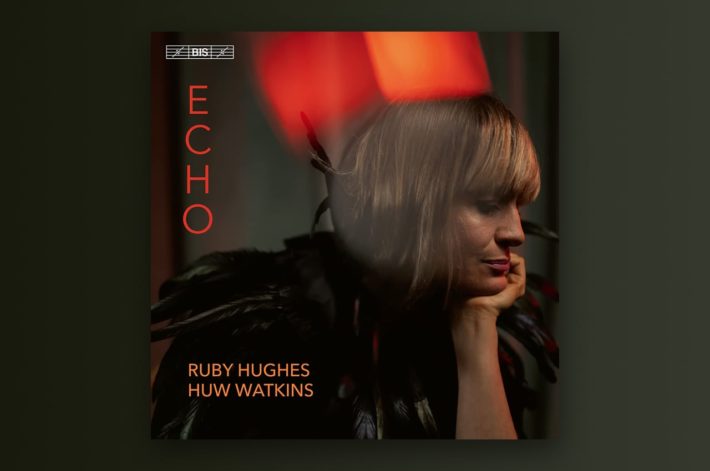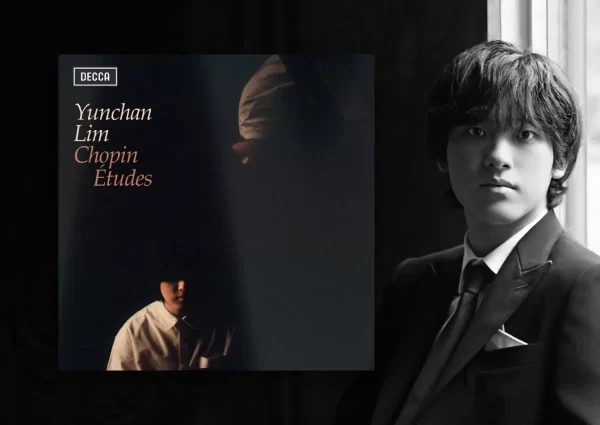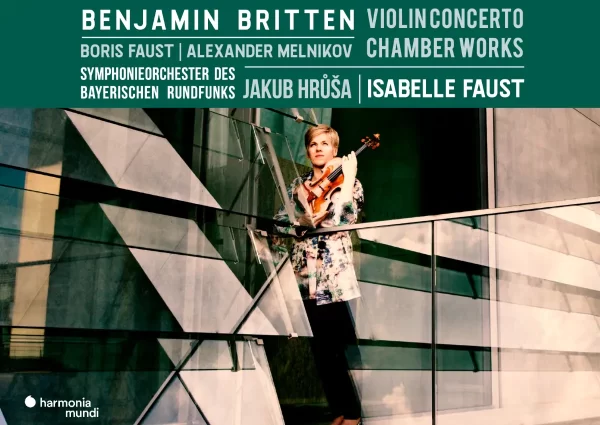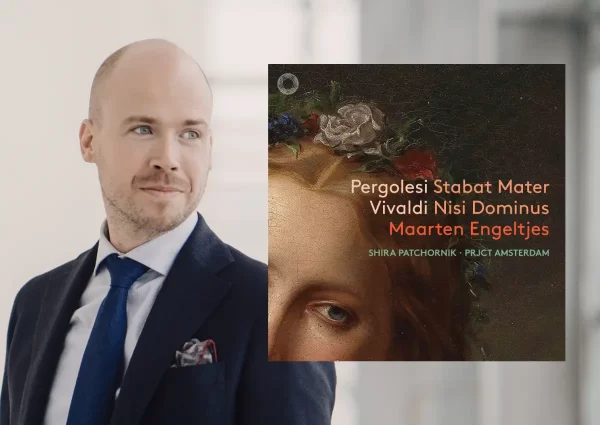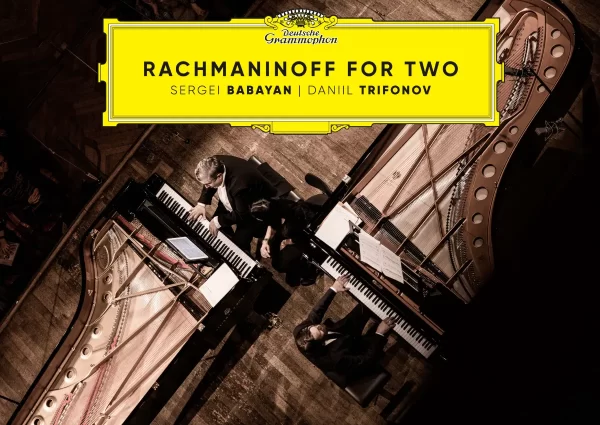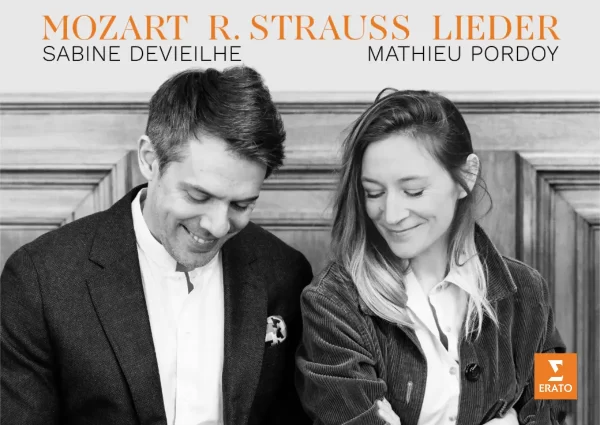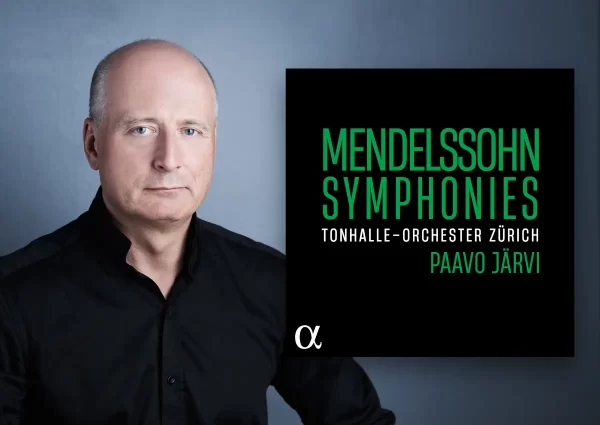In 2020, I reviewed Ruby Hughes’ Clytemnestra and remarked that the program was striking—and bone chilling—with the contemporary work by Rhian Samuel. Hughes’ new album, Echo, is a recital with pianist-composer Huw Watkins. Like in Clytemnestra, she balances contemporary with canon, the latter comprising works by Bach, Purcell, and traditional selections arranged by Britten.
The album’s thematic aim is emotionally encompassing, and admittedly dark. We may not immediately associate sadness with the Sarabande from Bach’s Partita No. 4, especially given its major key. However, the way Watkins plays it, the restrained calm gives way to thoughtfulness and introspection on repeated listens; the stylistic sparsity of the slow dance also highlights the singularity of the melodic line. The Sarabande from the B minor French Suite No. 3 is definitely more poignant. Again, the pianist offers tasteful simplicity but this time with added resonance—listen to the first few notes alone, whose mindful treatment effectively convey a sense of solitude and sadness.
Watkins’s Echo was written for and live-premiered by Hughes at Carnegie back in 2017; the cycle is inspired by the texts of Christina Rosetti, Emily, Dickinson, and W.B. Yeats. It aims to explore different aspects of melancholy, including ephemerality and ‘irretrievable loss’. The cycle shows the composer’s familiarity with the soprano’s voice, and he mentions that he was initially drawn to its purity. Her fine performance in Echo No. 1 certainly attests to this: there is the faultless evenness (but also sensitive quivers of vibrato when called for), perfect pitch placement, and the pristine diction–but also an impressive level of vocal and breath control that allows her to approach even the softest passage with expressive finesse. The pianist’s performance is no less impressive. The opening textures are simply gorgeous, a cross between chimes and flowing water. His handling of these passages give off a transient feel, and I found myself (in the best way) trying to grasp and savor the textures and interesting colors before they changed.
Related Posts
- Review: Dance With Me – Barbara Hannigan, Soprano
- Review: Phrases – Héloïse Werner, Soprano
- Review: This Be Her Verse – Golda Schultz, Soprano
The cycle as a whole is deeply personal obviously because of the chosen text but even more so due to Hughes’ storytelling capabilities: she possesses the rare ability to make listeners feel like they are the only ones in the room. The first few moments of Echo No. 3 (track 9) see the same phrase (“If grief could burn out”) repeated, but each iteration is infused with shades of different characters that can appear just seconds apart. Listen closely from 0’16”-0’27” to hear how Hughes adjusts her vocal inflections to reflect a delicate interchange between assertion, earnestness, and weariness. Other moments like 0:40 remind me a bit of a narrator recounting a suspenseful moment of a tale. Watkins’s accompaniment is purposefully sparse, it seems, to really let the soloist come through; the care with which he plays and aligns each note with the singer’s, however, is not to be overlooked.
The final Echo No. 5 opens with cataclysmic crashes of intervals, setting up expectations for a high-intensity experience. The soprano again does excellent work with her vocal control to soothe us, at least temporarily. But, the musical peace is fantastically disturbed, if you will, about two minutes in: Hughes’s voice transforms into an anguished cry, complemented by Watkins’ piercingly pointillistic accompaniment.
Britten’s arrangement of ‘How Sweet the Answer’ (track 16) gives off slightly Debussy vibes in the parallel intervals of the piano part. It also delivers a much needed tender calm after the emotionally wrenching Echo. Errolyn Wallen’s text in the final ‘Peace on Earth’ might be simple, but the performance and arrangement leave us interestingly enough with mixed feelings of hope and trepidation.
The sound engineers at BIS do stellar work with the SACD recording: the solo piano pieces have good clarity and enough breathing room for Watkins’ polished tone quality to come though in well-rounded fashion. The collaborative selections, too, are beautifully and intimately balanced. Like the song cycle, the liner notes strike a personal tone, centering on the duo’s decade-long collaborative relationship. Both the notes and the recital make it evident that Hughes and Watkins inspire each other. My only wishes were that the song cycle was longer and that the duo offered even more of their excellent work. Enthusiastically recommended.

Echo
Ruby Hughes – Soprano
Huw Watkins – Piano
BIS, SACD 2568
Related Albums
Read more classical music reviews or visit The Classic Review Amazon store
Follow Us and Comment:
Get our periodic classical music newsletter with our recent reviews, news and beginners guides.
We respect your privacy.

